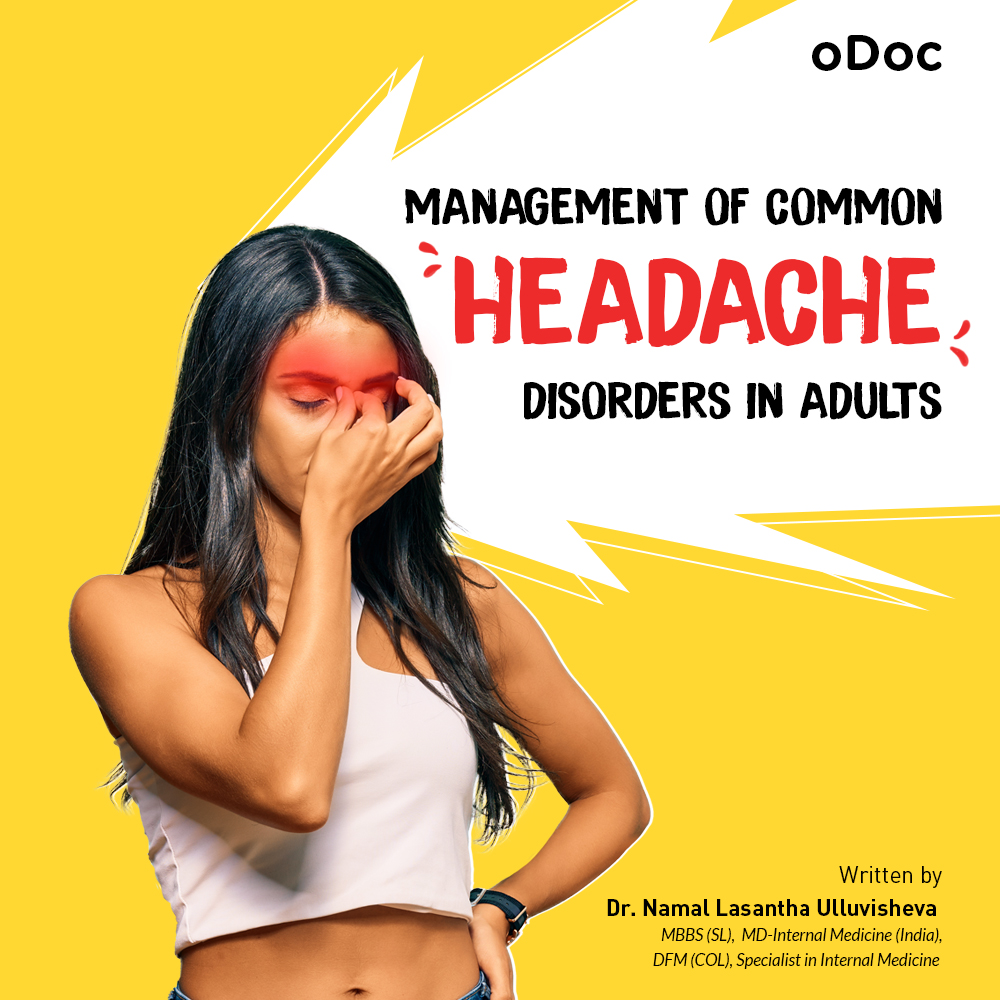Management Of Common Headache Disorders In Adults
Headache is a common medical condition worldwide. Physicians need to evaluate adult patients with acute headaches to determine whether the condition is benign (harmless) or if it indicates the features of life-threatening neurological or other systemic illness.
Approximately half of the adult population is affected by a headache disorder. Physicians are faced with many challenges in differentiating primary headaches (tension-type, migraine, cluster headache) from secondary headaches (those caused by infection or vascular disease). Hence, a thorough history, physical examination, and understanding of the typical features of primary headaches can reduce the patient’s cost of unnecessary investigation and intervention like neuroimaging, lumbar puncture, or other laboratory studies.
But if you experience frequent headaches, you might have a chronic headache. Unlike a specific headache type, chronic headaches include subtypes. The constant nature of this headache makes it one of the most disabling headache conditions. However, aggressive initial treatment and steady long-term management could help alleviate the pain.
Causes of chronic headaches
The causes of many chronic headaches are not well-understood. Primary chronic daily headaches don’t have an identifiable cause.
Conditions that might cause non-primary chronic daily headaches include:
- Inflammation or vascular disorders in the brain, including stroke
- Infections, such as meningitis
- High Intracranial pressure
- Brain tumour
- Traumatic brain injury
Common Chronic Headache types are,
- Migraine
- Tension-type headache
- Cluster Headache
- New daily persistent headache
- Medication overuse headache
- Sinusitis associated headache
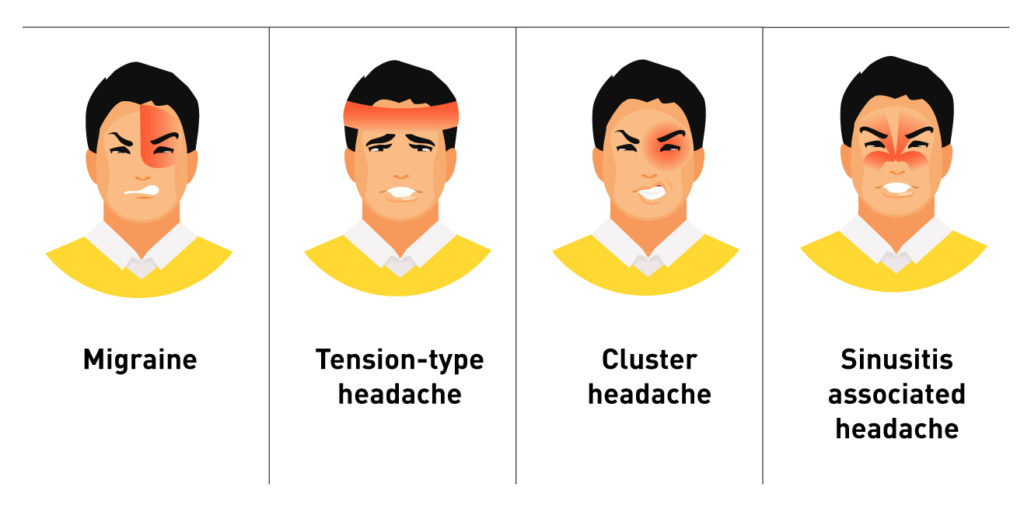
Cluster Headache – relatively rare
Severe or very severe unilateral orbital, supraorbital or temporal pain may last 15 to 180 minutes (if untreated).
Headache is accompanied by at least one of the following
- Conjunctival injection, lacrimation, nasal congestion or rhinorrhea, eyelid edema,
- Forehead and facial sweating, miosis or ptosis, restlessness or agitation
Tension-type headache – These headaches tend to:
- Affect both sides of your head
- Pain – Mild to moderate intensity
- Pain that feels pressing or tightening but not pulsating
Migraine – This type typically occurs in people with a history of episodic migraines.
Chronic migraines tend to:
- Affect one side or both sides of your head
- Have a pulsating, throbbing sensation
- Cause moderate to severe pain
And they might have at least one of the following:
- Nausea, vomiting or both
- Sensitivity to light and sound(Photophobia & Phonophobia)
New daily persistent headache – These headaches come on suddenly, usually in people without a headache history. They become constant within three days of the onset of the first symptoms.
- Often affect both sides of your head.
- Cause pain that feels like pressing or tightening, but not pulsating
- Cause mild to moderate pain
- It might have features of chronic migraine or chronic tension-type headache.
Medication overuse headache – This type of headache usually develops in people who have an episodic type headache disorder, usually migraine or tension-type, and are taking too much medication for their pain. If you’re frequently taking pain medications, even over-the-counter (generally more than two days a week), you will be at risk of developing rebound headaches.
Risk factors
Factors associated with developing frequent headaches include:
- Female sex
- සාංකාව
- මානසික පීඩනය
- Sleep disturbances
- ස්ථූලතාව
- Snoring
- Overuse of caffeine
- Overuse of analgesic medication
- Other chronic pain conditions
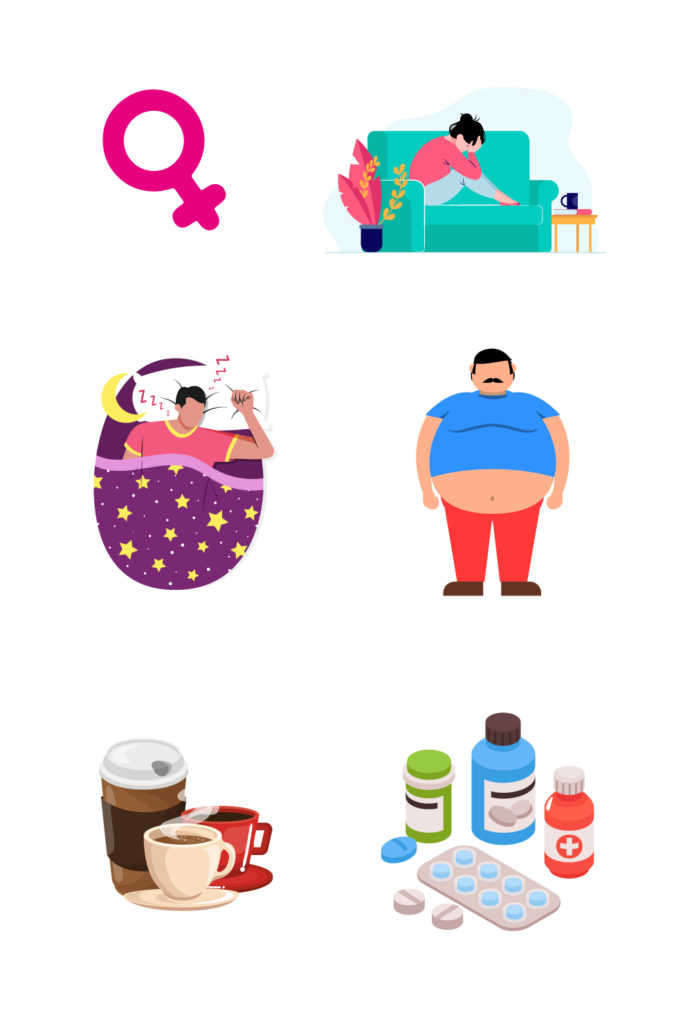
Diagnosis
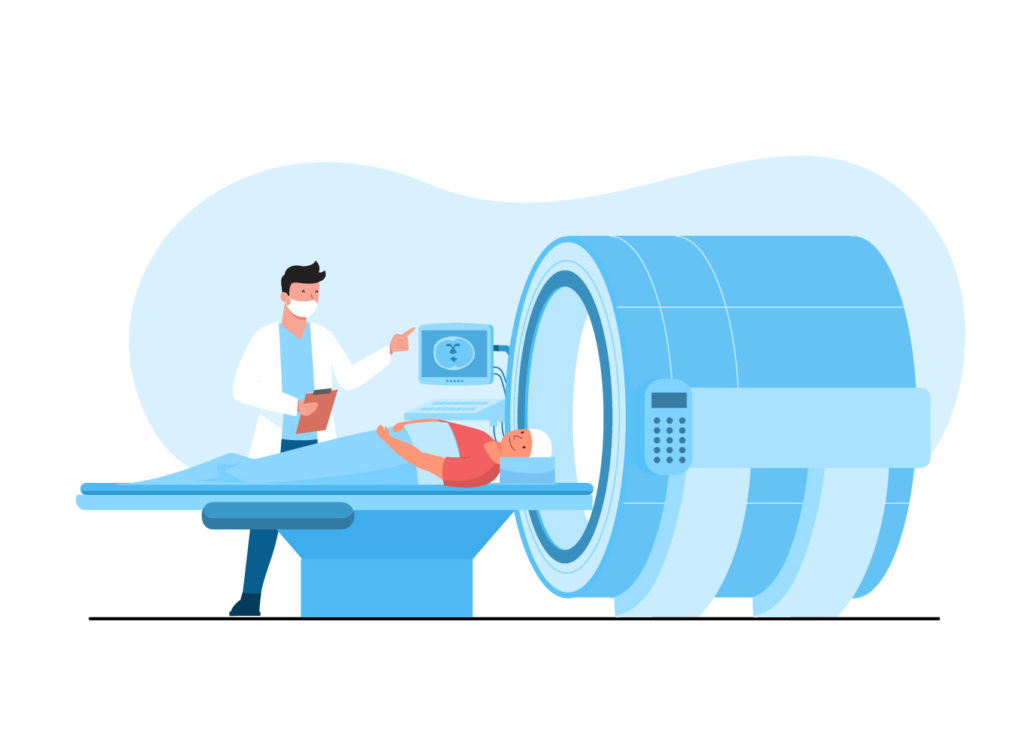
Your doctor will evaluate the symptoms and examine you for signs of underlying medical conditions such as infection, neurological problems, etc. If the cause of your headaches remains uncertain, your doctor might order imaging tests, such as a CT or MRI scan of the brain, to look for an underlying medical condition.
Prevention
Taking care of yourself might help ease chronic daily headaches.
Avoid headache triggers.
- Keeping a headache diary can help you determine what triggers your headaches to avoid the triggers.
- Include details about every headache, such as when it started, what you were doing at the time and how long it lasted.
Avoid medication overuse.
- Taking over-the-counter medications more than twice a week can increase the severity and frequency of your headaches.
- Consult your doctor about how to wean off the medication because there can be severe side effects if taken improperly.
Get adequate sleep.
- The average adult needs 7-8 hours of sleep a night, and it’s best to go to bed and wake up simultaneously every day.
- Talk to your doctor if you have sleep disturbances, such as snoring.
Don’t skip meals.
- Eat healthy meals at the same time daily. Avoid food or drinks, such as those containing caffeine that triggers headaches.
- Try to lose weight if you are obese or overweight.
Do regular exercise.
- Regular aerobic physical activity can improve your physical and mental well-being and reduce stress.
Reduce stress.
- Stress is a common trigger of chronic headaches, so get organised, simplify your schedule, plan ahead and stay positive.
- Try stress-reduction techniques, such as yoga, tai chi or meditation.
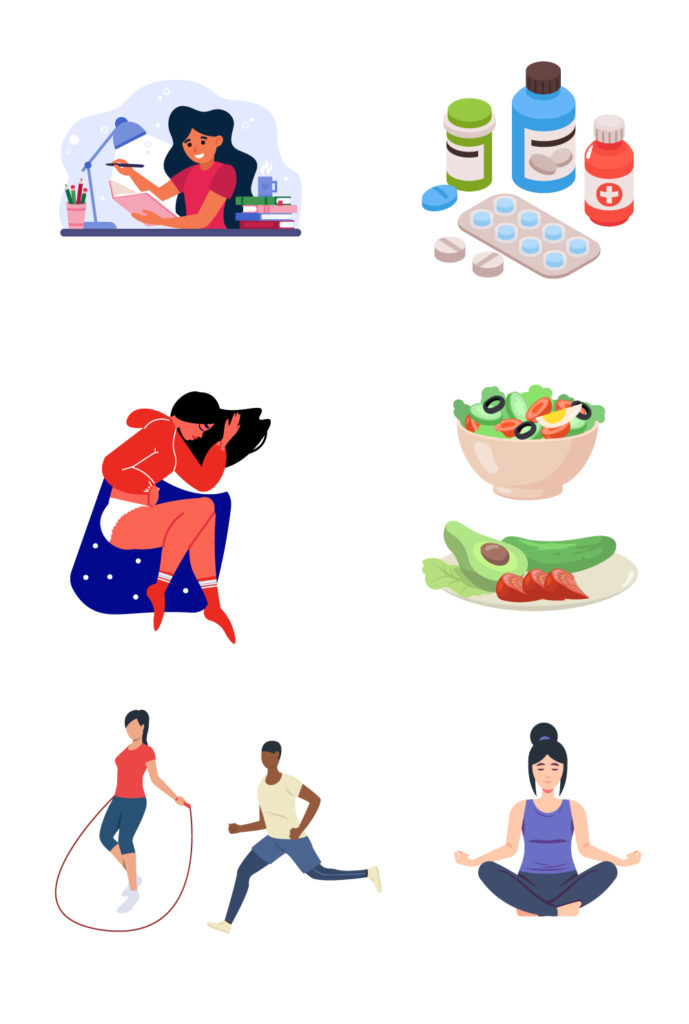
When to see a doctor
Occasional headaches are common and usually require no medical attention. However, consult your doctor if:
- You have two or more headaches a week
- You are required to take a pain reliever frequently
- You need more than the recommended dose of over-the-counter pain remedies to relieve your headaches
- The pattern of pain and headaches intensity has worsened
- Headaches interrupt your daily routines
Seek prompt medical care if your headache:
- Is sudden and causes severe pain
- Accompanies a fever, neck stiffness, confusion, seizure, double vision, any limb weakness/numbness or difficulty speaking
- Follows a head injury
- Gets worse despite rest and pain medication
Treatment
Treatment for an underlying condition is the definitive management of chronic headaches. If the doctor cannot find such an etiological condition, treatment will be focused on symptom relief and prevention of pain.
Prevention strategies may vary depending on your headache type and whether medication overuse contributes to your headaches. If you take pain relievers more than three days a week, the first step might be to wean off these drugs with your doctor’s instructions.
After a detailed evaluation of the symptoms and signs, your doctor may recommend various medications depending on your clinical profile.
Coping and support
Chronic headaches can interfere with your day-to-day activities, relationships and quality of life.
- Have self-control – Commit yourself to living a full, satisfying life and discuss with your doctor to develop a treatment plan for you while doing things that lift your spirits.
- Reach out to support groups. You might find it helpful to talk to other people who have chronic headaches.
- Consider counselling. A counsellor/psychologist will support you, and they help to manage your stress. Additionally, there is evidence that cognitive-behavioural therapy can reduce headache frequency and severity.
In these difficult times, it is vital we look after ourselves and our loved ones. If you or anyone you know is suffering from any of the above-mentioned symptoms you can speak to an on-demand doctor on oDoc from the comfort of your home.
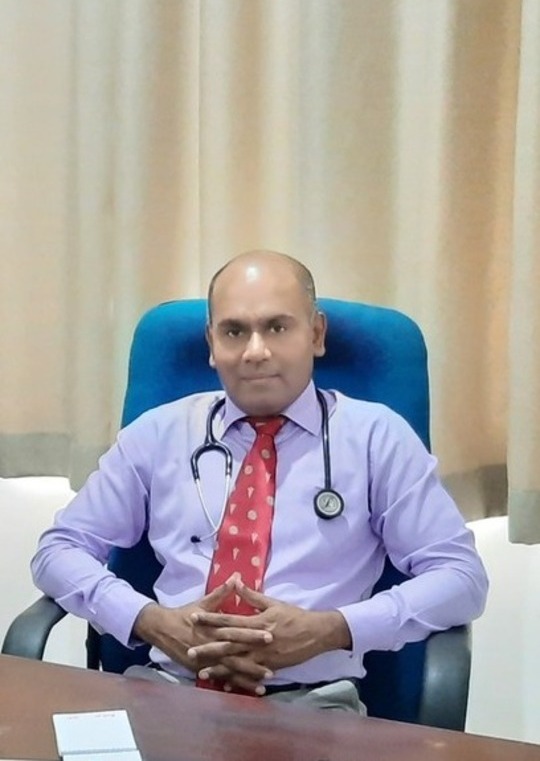
Dr Namal Lasantha Ulluvisheva
General Physician
SLMC 19165
Sri Lanka Navy – Ministry of Defence
Similar Articles...

Let’s talk flu, its prevention and home remedies.
Boo-ger season is here! Let’s begin by defining flu (short term for influenza) because it’s usually misunderstood as fever or cold. Flu is a common

Menopause Brain Fog is real: A Simple Guide with Symptoms and Treatment
Menopause Brain Fog is real: A Simple Guide with Symptoms and Treatment Women in their 40s and 50s who are just entering the end of

How to Keep Work Stress from Taking Over Your Life
How to Keep Work Stress from Taking Over Your Life In today’s fast-paced and competitive world, work stress has become an all-too-common problem that affects
